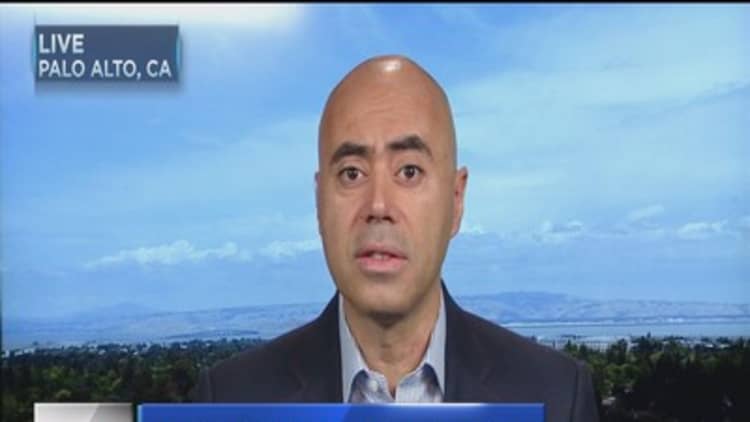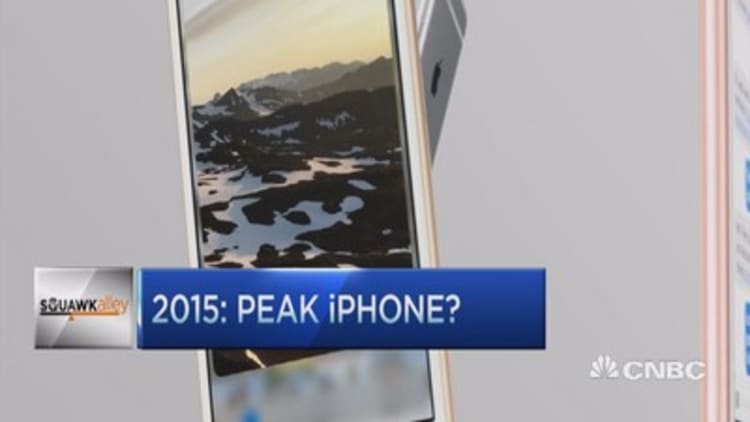



With catered lunches, travel insurance and unlimited leave, Silicon Valley might seem like a paradise at the companies that hit the technology goldmine.
But even programmers have to to deal with the inevitable taxes, lawsuits and shareholders, leaving some companies deep in the legal weeds to round out the year, experts told CNBC.
Apple, Facebook and "unicorn" venture capital darlings are among the companies facing scrutiny of their business practices this past week.
Apple cashes out on tax dispute
Apple will pay a hefty sum — $348 million — to settle a tax dispute in Italy, sources told Reuters on Wednesday. And the accompanying tax accord may take a (relatively small) bite of the tech giant's considerable profits held offshore.
Read MoreTim Cook is backed in his salvo against taxes
The agreement with Italy comes as an EU tax ruling on Apple's dealings with Ireland is looming, Reuters reports. Still, an adamant CEO Tim Cook told the CBS program "60 Minutes" earlier this month that Apple is honoring the law and avoiding an unreasonable tax burden.
The tax system is "definitely antiquated," and fails to incentivize innovation, said Dan Rosensweig, president and CEO of online student bookstore Chegg. But Apple might not necessarily benefit from U.S. tax reform, either.
"It's easy to say, 'Fix it,' when people are going after you," Rosensweig said Wednesday on CNBC's "Squawk Alley." "I don't think [Cook] would like the way they would fix it for the digital economy, which would mean that companies like his would be taxed more."
Apple's ongoing tax melee unfolds against a challenging backdrop for its flagship product, the iPhone, as Wall Street braces for tougher holiday results, an analyst told CNBC's "Squawk Alley" on Wednesday.
"It definitely looks like a choppy period ahead, especially into March and June," said Daniel Ives, managing director and senior analyst at FBR Capital Markets. "I think it all comes down to iPhone 7 ... to really show that peak iPhone [sales are] not in the rearview mirror."
Facebook lawsuit goes class action
Social media giant Facebook, meanwhile, faces its own issues in the form of class-action lawsuits. Shareholders in the lawsuit say Facebook omitted the impact of increased mobile device usage on projected revenues prior to the initial public offering, court documents allege.
It was arguably a rocky public start for the company, which traded below its May 2012 $42.05 open for more than a year. But Rosensweig said Facebook was very clear during its roadshow with investors.
Read More Facebook, Google, Amazon some of the most trafficked tech apps of 2015
"It articulated that one of the areas ... of concern was the transition from desktop to mobile," Rosensweig said. "Nobody can predict when that transition happens. And I think if you ask any investor that invested from the IPO on, and stayed with the company, are they happy it's gone from $38 to $107? I'd say yes. So I think Facebook was remarkably transparent."
Though shares of Facebook are up more than 35 percent this year alone, Rosensweig said such shareholder lawsuits make it more difficult for companies that are considering going public.
Unicorn investors face uncertain terms
That could be yet more bad news for a slew of Silicon Valley unicorns — valued privately at $1 billion or more — eyeing an IPO in 2016.
Highly valued start-ups are under scrutiny after reports shed light on the acquisition of Good Technology, which saw the values of its shares plummet as it moved away from a plan to go public. The company's case revealed a snag in the realities of equity agreements and challenges of diversifying private stock.
"A lot of these so-called unicorns have a ton of preferences, a ton of structured equity on top of that," venture capitalist Hany Nada told "Squawk Alley" on Wednesday. "Even if these companies do sell at $1 billion or more, the payouts to the common stockholders can be pretty low. "
Read More Tech players emerge as public vs private boils over into 2016
Though a subset of highly valued companies are solid, others are "built on fluff and hype," and could fall away from the public market in the next year, said Nada, who is co-founder and managing partner of GGV Capital. In those cases, equity-holding employees can bear the brunt of a down round or discounted acquisition, as detailed by a recent profile of Good Technology in The New York Times.
"This is the Valley, right? Everybody puts all their eggs in one basket," Nada said. "Often times, they win big. And often times, they do not."
Disclosure: FBR acts as a market maker or liquidity provider for Apple.
— CNBC's Julia Boorstin and Reuters contributed to this story.



